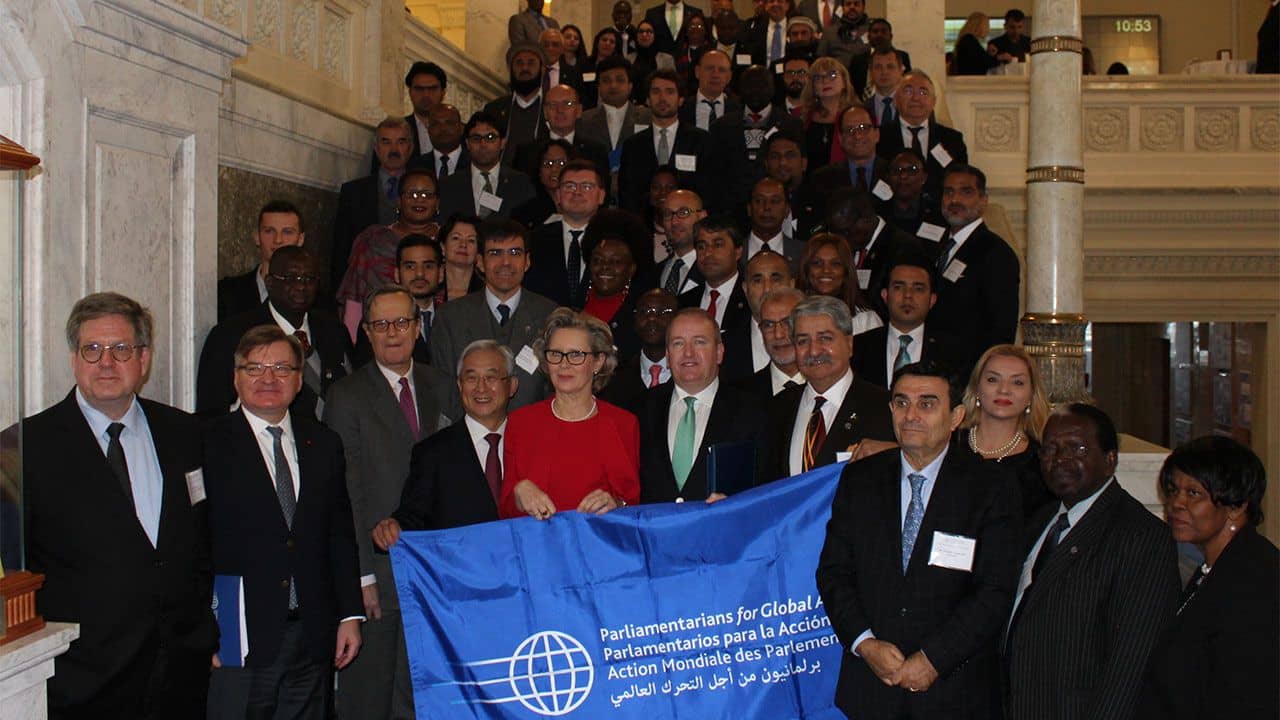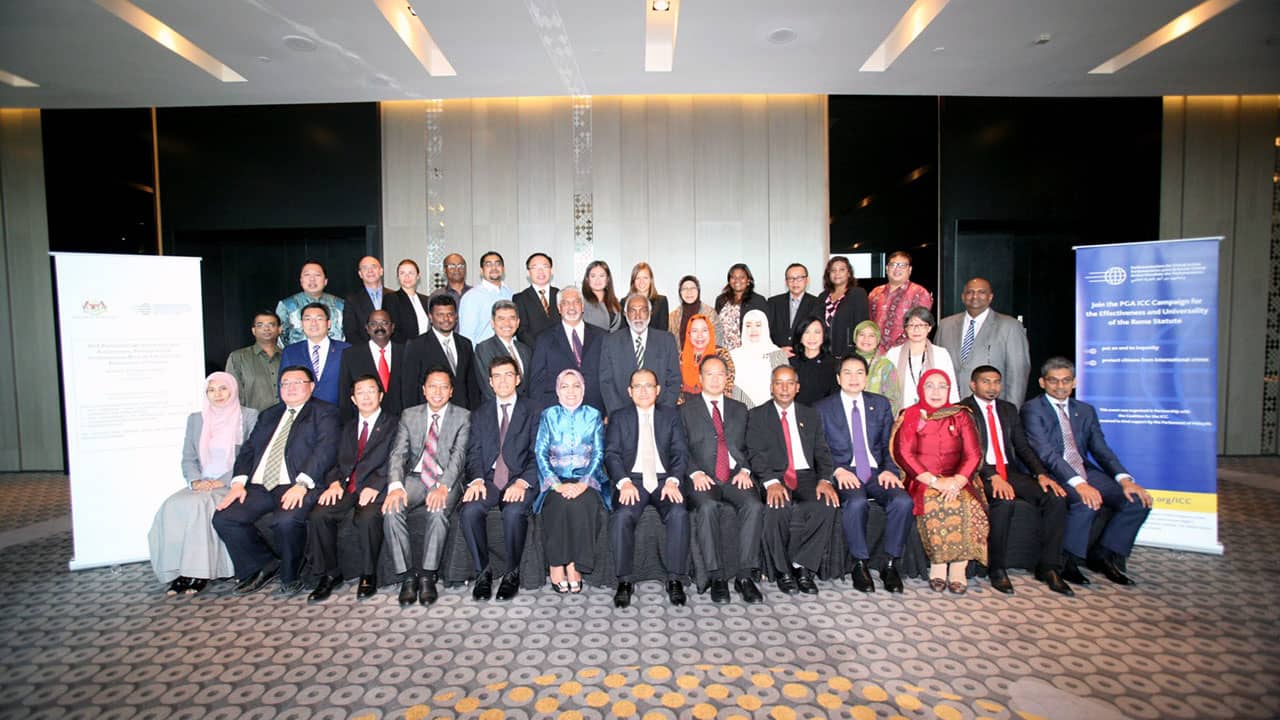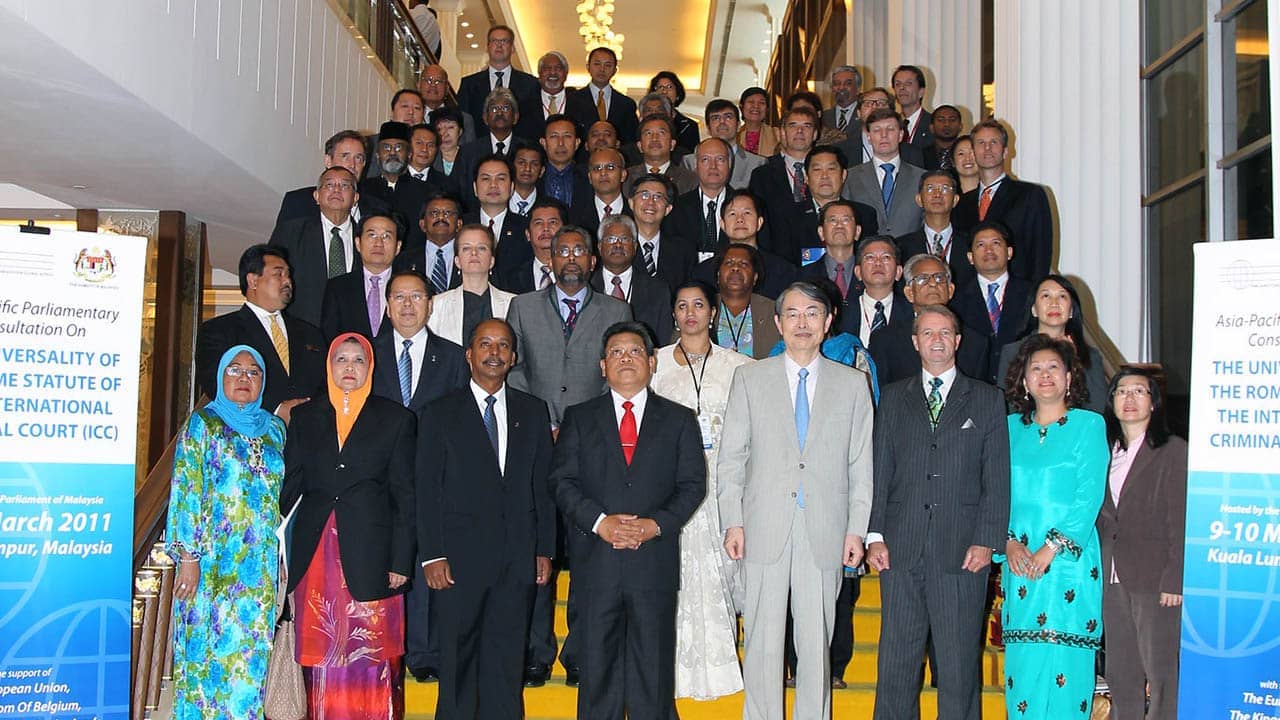Republic of The Maldives
PGA has been involved with the Republic of the Maldives since 2010. The Maldives were represented in the PGA organised Asia-Pacific Parliamentary Consultation on the Universality of the Rome Statute, hosted by the Parliament of Malaysia, on 9-10 March 2011.
Rome Statute
On 14 June 2011, the Parliaments of the Maldives adopted legislation to accede to the Rome Statute. The Maldives deposited its instrument of ratification of the Rome Statute on 21 September 2011.
Status on the domestic implementation of the Rome Statute
The Republic of the Maldives have not yet implemented the Rome Statute in their domestic legislation.
Agreements on Privileges and Immunities of the Court (APIC)
The Maldives have not signed the APIC.
Additional Agreements
The Maldives have signed a Bilateral Immunity Agreement (BIA) with the United States regarding the surrender of persons to international tribunals on 8 and 10 April 2003, which entered into force on 8 July 2003.
Progress and PGA Action
PGA has received a request for technical assistance on domestic implementation of the Rome Statutes in the Constitution and Criminal Code of the Maldives from its Member MP in September 2014. Following this request the relevant legislation has been requested and technical advice will be prepared.
Human Rights Council Universal Periodic Review:
Maldives will be reviewed during the 22nd session of the UPR in 2015.








